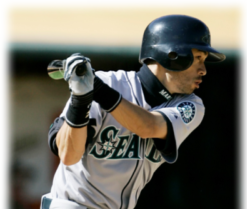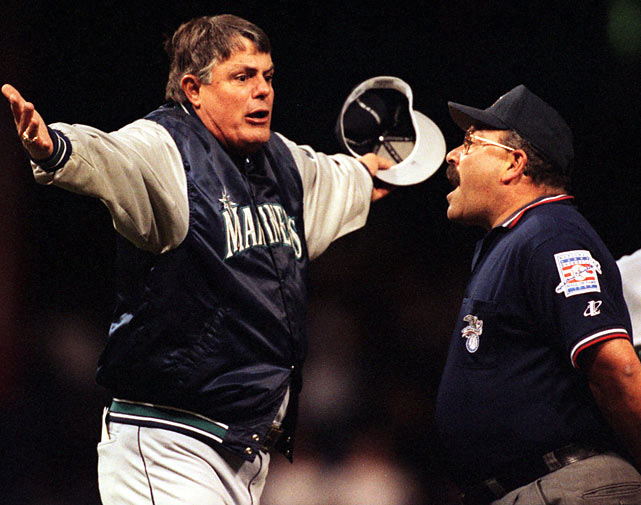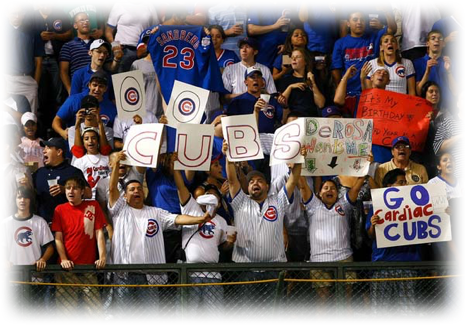
Note: I am pleased to present here Part II of my personal tribute to the future Hall of Famer and all-time great Seattle Mariners right fielder, Ichiro Suzuki, who retired from baseball a few days ago during a Mariners/Oakland A’s game in Tokyo, Japan. The article, which I have entitled “In Honor of Ichiro,” was mostly written in 2004 following Ichiro’s magnificent accomplishment of breaking George Sisler’s single season hit record; a mark which stood for 84 years and which many thought would never be broken. Of course that explains some of the dated facts in the article, like the statement that the Cubs haven’t won a World Series. (In 2004 they hadn’t.) I was fortunate to get to see Ichiro play many times at Safeco Field while he was a Mariner, and I knew I was watching greatness; though in a form many of us in the US were not familiar with. When Ichiro first came to the Major Leagues in 2001 most fans wondered if he could adjust to the style of play in the Bigs. As we saw, the Big Leagues had to adjust to him. I invite you to read on…MA
In Honor of Ichiro-Part II
The 2002 Mariners team got off to another fast start. For a while it looked like they would run away with the AL West again; but by midseason chinks had begun to show in the Mariners armor. It was obvious the team needed more offense. Lou was becoming increasingly frustrated with management over their inability to pull the trigger on mid-season deals to help the team. By midway through the second half we were overtaken by the A’s, who had become red hot. Though the M’s won 93 games, a good year in almost any team’s book, it was a full 23 victories short of the year before, and was not even good enough for the Wild Card, which fell to AL West rival Anaheim. 93 wins and only third in the AL West? That’s a tough year!
As for Ichiro, chinks began to show in him as well. His steals went down; so did his batting average and number of hits. His defense remained stellar, but I began to see that he had some holes in his game. As I analyzed him, it seemed to me that he swung at too many bad pitches. I had read Ted Williams’ book “Science of Hitting”. In it Ted lays out the first rule of hitting: “Get a good pitch to hit.” The unstated corollary would be, “Don’t swing at bad pitches.” Ichiro did this way too much I thought. The result was he didn’t walk much. Of course, Ichiro would probably counter with the fact that he is a good bad ball hitter. Anyone who has seen him in the famous video from Japan where he is playing with the Orix Blue Wave and gets a base hit on a pitched ball that actually bounced in front of the plate, would be inclined to agree. But Ted Williams, the last .400 hitter ever, would not have swung at that pitch, or at many others that I watched Ichiro swing at that season. I began to think of him as an above average player who was great defensively, but not a superstar.

As the 2002 season was winding down, though we didn’t know it at the time, so was Lou Piniella’s career as Manager of the Seattle Mariners. That winter the Mariners released Lou from the final year of his contract, thus allowing him to sign with his home town Tampa Bay Devil Rays. In return we got a player from the D’Rays, their starting center fielder, Randy Winn. Lou could now manage and be close to his home in Tampa. Good for him. But once again, bad for us fans. I miss Lou Piniella. I miss his fire. I miss the idea that he may at any time explode from the dugout and cover an erring ump with both expletives and infield dirt. I miss that he cared so much. Lou saved baseball in Seattle and is as responsible as anyone for the spectacular Safeco Field we enjoy today. The young player who first made it to Seattle for a cup of coffee with the old Seattle Pilots in 1969 has certainly made his mark on the game. The Mariners and Seattle owe him a debt of gratitude.
The Mariners conducted a search for a new Manager and eventually settled on the young and untested Bob Melvin. Bo Mel’s credentials included an ordinary Major League career as a catcher and a few years as Bob Brenley’s bench coach with the Arizona Diamondbacks. Melvin was on that post when the Diamondbacks beat the Yankees in the 2001 World Series. That’s the Series the Mariners should have played in. So, he had some post season experience, but as a Big League manager he had none, and so came cheap. This last fact was not lost on Mariners fans. We had begun to regard our front office as guys who would put a winning team on the field, but who would not take the extra step when it was needed to put us over the top. They seemed more concerned with the team bottom line than the team playing on the field. Many of us sided with Lou on this issue; just one aspect of the pain Mariners fans feel.

It has been said of baseball fandom that there are different kinds of pain. There is Red Sox pain, born out of the “Curse of the Babe,” stemming from the trading of Babe Ruth to the New York Yankees in 1919 for $100,000 so the Red Sox owner could produce a Broadway play called “No No Nanette”. The Red Sox did not win another series for 85 years. Then there is Cubs pain, which stems from a multitude of things like the incident described earlier where the fan prevents the key out. The Cubs have not won a Series since 1908; they last played in the Fall Classic in 1945. There have been generations of Cubs fans that have grown up, lived their lives, and died without seeing the Cubs win a Series. Cubs pain is so bad that it prompted a Chicago folk singer named Steve Goodman to write a song called, “A Dying Cub Fan’s Last Request.” The song describes a guy on his death bed who makes it clear to his friends that the Cubs are responsible for most of the misfortune in his life, but that he will get the last laugh, as now he will go to heaven and get to see the Angels play while his poor sucker friends are stuck in Chicago with the Cubs.
And then there’s Mariners pain. Always the bridesmaid and never the bride. The Mariners went their first fifteen years without a winning record, and when they finally cracked .500 it was barely, going 83-79 in 1991. Afflicted with bad ownership and a bad ballpark (The Kingdome), the Mariners gave new meaning to the term, “inferiority complex.” In the mid-nineties this began to change, what with Piniella, Junior, Edgar Martinez, Jay Buhner, Randy Johnson and Alex Rodriguez. But, then we lose Randy… then Junior… then Alex. And then the year that was to be our year—2001—and what happens? 9/11! Finally, Piniella himself leaves. Mariners pain! It’s a bit like a kid who grew up in the depression and still hoards his food. Will we ever overcome our humble beginnings? Only by grasping this can one grasp the suspicion with which Mariners fans regarded the onset of the Bo Mel regime. We certainly hoped it would work; but we feared the worst.

Despite Piniella leaving, the Mariner pattern of fast starts continued with the arrival of the 2003 season. They led the division through the first half and seemed to be playing well. They had solidified their pitching rotation and actually became the first team since the ’66 Dodgers to have the same five starters pitch an entire 162 game season. Maybe this Bob Melvin guy could do the job. Maybe this would be our year.
And then again, maybe not! Once again the Mariners faded in the second half. Once again we were leapfrogged by a hot A’s team. Once again, though finishing with a respectable 93-69 record, we did not make the playoffs. The Red Sox got the Wild Card by a couple of games. The Mariners had developed a disturbing pattern of late season fades. What was wrong? Was the team too old? Can the players no longer handle the rigors of a 162 game season? What? Many questions and mighty few answers.
As for Ichiro, he continued to live down to my estimation of him from the year before. He hit .312, his lowest to that point in the Majors, and his on base percentage (OBP) fell to .358. He walked only 36 times all year; plus, his steals were way off. To make matters worse, I had read a book that was really changing how I viewed the game of baseball as far as the relative importances of the various baseball statistics are concerned. The book is called “Money Ball,” and was written about Oakland A’s GM Billy Beane, and how he manages to keep the A’s winning year after year with a small budget. I was getting tired of having my team being beaten out by the hated A’s.

What the book is really about, however, is a system of statistics developed by a guy named Bill James. For the last 25 years or so James has been publishing an article called “Baseball Abstract” which covers the various theories he has come up with. Among the things James says, is that the historical baseball gauge of effective hitting, the batting average, is overrated. James reasoned that the key thing in baseball is scoring runs. That is what you are trying to do on offense, and what you must do to win a game. Therefore, a hitter who gets on base a lot, no matter how he does it, will have more value; hence the value of walks. “Batting Average” does not adequately account for this. A stat that does is called “On Base Percentage”. On Base Percentage is determined by taking the number of times a player reaches base and dividing it by his number of “at bats”. (For the purposes of this stat all “at bats” (ABs) count, whereas with batting average such things as walks, sacrifices and sacrifice flies do not count as ABs. In computing Batting Average, you take the number of hits a player gets and divide by the number of ABs, less the times the player walked, sacrificed or hit a sac fly. These do not count as “at bats” in computing batting avg.) By comparing OBP to runs scored James found it was a more effective way of measuring a player’s value than batting average statistically. Could it be that baseball tradition over the last 100 years was wrong? Could it be that the traditional way of evaluating players was incorrect?
As I read more of “Money Ball” the more I found myself agreeing with it. Other things that James had come up with were making a lot of sense to me. It explained volumes about how that damn Billy Beane could keep the A’s on top. Another stat that James highly valued was called “Slugging Percentage”. This stat was determined by dividing the total bases the player got on his hits by his total number of ABs. For instance, a single was one base, a double two bases and so on. If a player had 500 ABs and had 100 singles, 30 doubles, 3 triples and 20 home runs he would have accumulated 249 total bases. His slugging percentage would therefore be just under .500. Another player, like Ichiro, could have 150 singles, 12 doubles, 6 triples and 7 homeruns. This player would have more hits and a higher batting average but his slugging percentage would only be .440; nearly 60 points lower than the first player. Traditional baseball wisdom values the second player more than the first. But, according to Bill James the first player would have more effect on the purpose of offense in baseball, which is scoring runs.
Among the other things that Bill James was discovering is that statistically offense was more important than defense. In other words, if you could pick between two players, one being just average defensively but above average offensively, and the other being above average defensively but only average offensively, you would take the better offensive player. He also was statistically disputing the value of such things as sacrifices and stolen bases. Using statistical analysis James could show that the value of an out made, when compared to the value of advancing a runner one base, was higher. In other words, it would make more sense, when it comes to scoring runs for your team, to let the hitter swing away than to lay down a bunt.

Now, all this was radical. It flew in the face of traditional baseball thought. The more I looked at it though, the more I liked it. Baseball people are notorious for assigning the reasons for their successes and failures to some cause outside their control and having no logical connection to their problems. They have strange practices, like not changing their caps all season, or not stepping on the first or third base lines as they come and go from the field. Otherwise logical people just seem to sometimes suspend all reason when it comes to baseball. I took a look at the A’s. They had a budget less than half that of the Mariners; yet the last two years they were the better team. I looked closer. They rarely sacrificed. Their roster was loaded with so-so batting average types with higher slugging percentage and OBP. They seemed to be a team molded on the Bill James model. Billy Beane was losing his mystique to me. How he did it was actually understandable. Why didn’t the Mariners use this stuff? Geez, if I can understand it can’t the Mariners GM and front office people? But old ideas die hard.
As far as Ichiro was concerned, when you looked at him against all this Bill James stuff, he just didn’t hold up well. He was primarily a singles hitter who swung at a lot of bad pitches, didn’t walk much, and was excellent defensively. He had a high batting average but low slugging percentage; not the Bill James model. My estimation of Ichiro was drooping. My estimation of the Mariner’s management was that they were stodgy and dull; unwilling to change their fixed ideas of how to do things.
The way the Mariners started the 2004 season did nothing to change my mind.
To be continued…
Copyright © 2019
By Mark Arnold
All Rights Reserved


2 Responses
Thanks for the wanted education re baseball. jo 🙂
You’re Welcome, Joline!